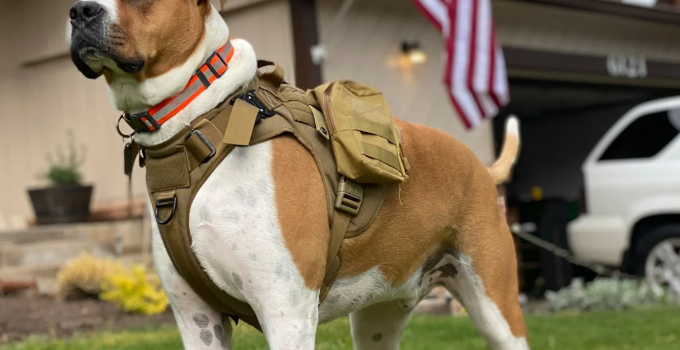In a state known for its beautiful outdoors and active lifestyles, dogs are often cherished members of Colorado households. However, even the friendliest dogs can sometimes act unpredictably, leading to unfortunate incidents like dog bites. Navigating the legal landscape around these incidents is crucial for both dog owners and victims. This guide explains Colorado’s dog bite laws, helping you protect your rights and responsibilities.
Strict Liability: The Foundation of Colorado’s Dog Bite Laws
Unlike some states that follow the “one bite” rule, Colorado has a strict liability law for dog bites. This means dog owners are held responsible for injuries their dogs cause, regardless of the dog’s past behavior or whether the owner knew about any aggressive tendencies. The Colorado Revised Statute §13-21-124 establishes this principle, offering protection to victims of dog attacks.
Under this law, dog owners can be liable if their dog bites someone who was lawfully on public or private property, resulting in serious bodily injury or, in severe cases, death. This liability applies even if the owner was unaware of the dog’s aggressive nature.
Defining “Serious Bodily Injury”
To qualify for compensation under Colorado’s strict liability law, the injuries must meet the legal definition of “serious bodily injury,” which includes:
- A substantial risk of death
- A significant risk of permanent, severe disfigurement
- A substantial risk of long-term loss or impairment of a bodily function
- Broken bones, fractures, or second- or third-degree burns
Injuries that fall into these categories often require extensive medical treatment and rehabilitation and can have long-lasting effects.
Recoverable Damages
If your injuries meet the criteria for serious bodily harm, you can seek compensation for economic damages under Colorado’s dog bite law. These damages may include:
- Current and future medical bills
- Surgical costs
- Rehabilitation expenses
- Psychological counseling fees
- Lost wages, both past and future
- Diminished earning potential
However, the strict liability law does not cover non-economic damages, such as pain and suffering or emotional distress.
Negligence: Another Path to Compensation
If the injury does not meet the “serious bodily injury” threshold or if the circumstances do not fall under strict liability, victims can still seek compensation through a negligence claim. To prove negligence, the injured party must show that the dog owner had a duty of care, breached that duty, and caused the injury. Examples include failing to properly restrain the dog or ignoring leash laws.
Successful negligence claims can allow victims to recover both economic and non-economic damages, including compensation for pain and suffering, emotional distress, and loss of enjoyment of life.

Comparative Negligence: Determining Fault
Colorado uses a modified comparative negligence rule for personal injury cases, including dog bites. This means that if both the dog owner and the victim share some degree of fault, the victim’s compensation may be reduced based on their level of responsibility.
For example, if a victim is found to be 20% at fault for provoking the dog, their total damages would be reduced by 20%. If the victim is found more responsible than the dog owner, they may be barred from receiving any compensation.
Defenses for Dog Owners
While Colorado’s laws aim to protect victims of dog bites, dog owners have legal defenses that can help mitigate or eliminate liability, including:
- Trespassing: If the victim was unlawfully on the dog owner’s property, the owner may not be held liable.
- Provocation: If the victim provoked the dog, the owner’s liability may be reduced or negated.
- Working Dogs: Dogs performing official duties (e.g., police or military dogs) or those engaged in hunting or herding activities on the owner’s property may be exempt from liability.
- Warning Signs: If the dog owner has posted clear warning signs about the presence of a dangerous dog, they may be shielded from liability.
Reporting and Documentation: Essential Steps
If you are bitten by a dog, taking prompt action and documenting the incident thoroughly can significantly impact the outcome of your case. Follow these steps:
- Seek Medical Attention: Your health should be your first priority. Even minor bites can lead to infections, so seek medical care immediately.
- Identify the Dog Owner: Get the contact information of the dog owner and ask for the dog’s vaccination records.
- Collect Evidence: Take photos of your injuries, the location, and any relevant details. Witness statements can also be valuable.
- Report the Incident: Notify local authorities like animal control or the police. This creates an official record that can be important for legal proceedings.
- Reach Out to the Ronquillo Law Firm: Consulting an experienced attorney is crucial. The Ronquillo Law Firm specializes in dog bite cases and can guide you through Colorado’s legal process, ensuring your rights are protected and that you receive the compensation you deserve.
Local Ordinances and Leash Laws
While Colorado’s dog bite laws provide a statewide framework, many municipalities have their own rules about dog ownership and control. For example, Denver has strict leash laws requiring dogs to be leashed in public unless in designated off-leash areas. These local laws can influence the outcome of dog bite cases, so it’s important for both owners and victims to be aware of them.
Statute of Limitations: Don’t Delay
Dog bite claims in Colorado are subject to a statute of limitations, typically two years from the date of the incident. If you don’t file within this timeframe, you may lose your right to seek compensation. In some cases, such as those involving minors, exceptions may extend this period.
Insurance Considerations
Dog bite claims are often addressed through the dog owner’s insurance, such as homeowners’ or renters’ insurance. These policies usually include liability coverage for dog bites. However, insurance companies may try to minimize payouts, so having an experienced attorney like those at the Ronquillo Law Firm on your side can be crucial to navigating these complexities.
Psychological Trauma: The Hidden Impact
Beyond physical injuries, dog bites can cause significant psychological trauma, including anxiety and PTSD. Colorado law allows victims to seek compensation for psychological counseling costs as part of their economic damages. It’s important to address both the physical and emotional effects of a dog attack.
Responsible Dog Ownership: Preventing Incidents
Preventing dog bites should be a priority for all dog owners. Responsible ownership includes:
- Behavioral Training: Addressing aggression early can help prevent dangerous behavior.
- Proper Restraint: Following leash laws and keeping dogs contained can prevent accidents.
- Veterinary Care: Regular check-ups and vaccinations keep your dog healthy and less prone to unpredictable behavior.
- Socialization: Exposing dogs to various people and environments helps reduce fear-based aggression.
- Responsible Adoption: Choosing reputable breeders or adoption agencies ensures that dogs are well-matched to their owners.
By adopting these practices, dog owners can help prevent incidents and contribute to safer communities.
Seeking Legal Guidance: The Importance of Expert Advice
Understanding Colorado’s dog bite laws and navigating the legal landscape can be challenging. Whether you’re a victim seeking compensation or a dog owner facing liability, the Ronquillo Law Firm provides expert legal guidance. Their team is experienced in handling complex dog bite cases, ensuring that your rights are upheld and that you receive the compensation you deserve.
From investigating the incident to negotiating with insurance companies, the Ronquillo Law Firm is committed to supporting you through every step of the legal process.
Conclusion: Promoting Safety and Accountability
Colorado’s dog bite laws are designed to protect victims while promoting responsible pet ownership. By understanding your rights and responsibilities, you can navigate dog bite incidents with confidence. Whether preventing bites through responsible ownership or seeking justice as a victim, knowledge is key.
For those affected by dog bites, the Ronquillo Law Firm stands ready to assist. Contact them today for a free consultation and take the first step towards securing the compensation and peace of mind you deserve.
FAQs
Colorado’s strict liability law holds dog owners responsible for bites that result in serious bodily injury, even if the dog has no history of aggression. This applies to incidents where the victim was lawfully on public or private property.
Serious bodily injury includes a substantial risk of death, severe disfigurement, or long-term impairment of bodily functions. Examples include broken bones, fractures, or significant burns.
Yes, if your injuries do not meet the “serious bodily injury” threshold, you can still pursue a negligence claim. This requires proving that the dog owner failed to exercise reasonable care, such as not restraining the dog properly.
Seek medical attention immediately, document the incident with photos and witness statements, report the bite to authorities, and contact the Ronquillo Law Firm for legal assistance. They can help you navigate the legal process and pursue compensation.


